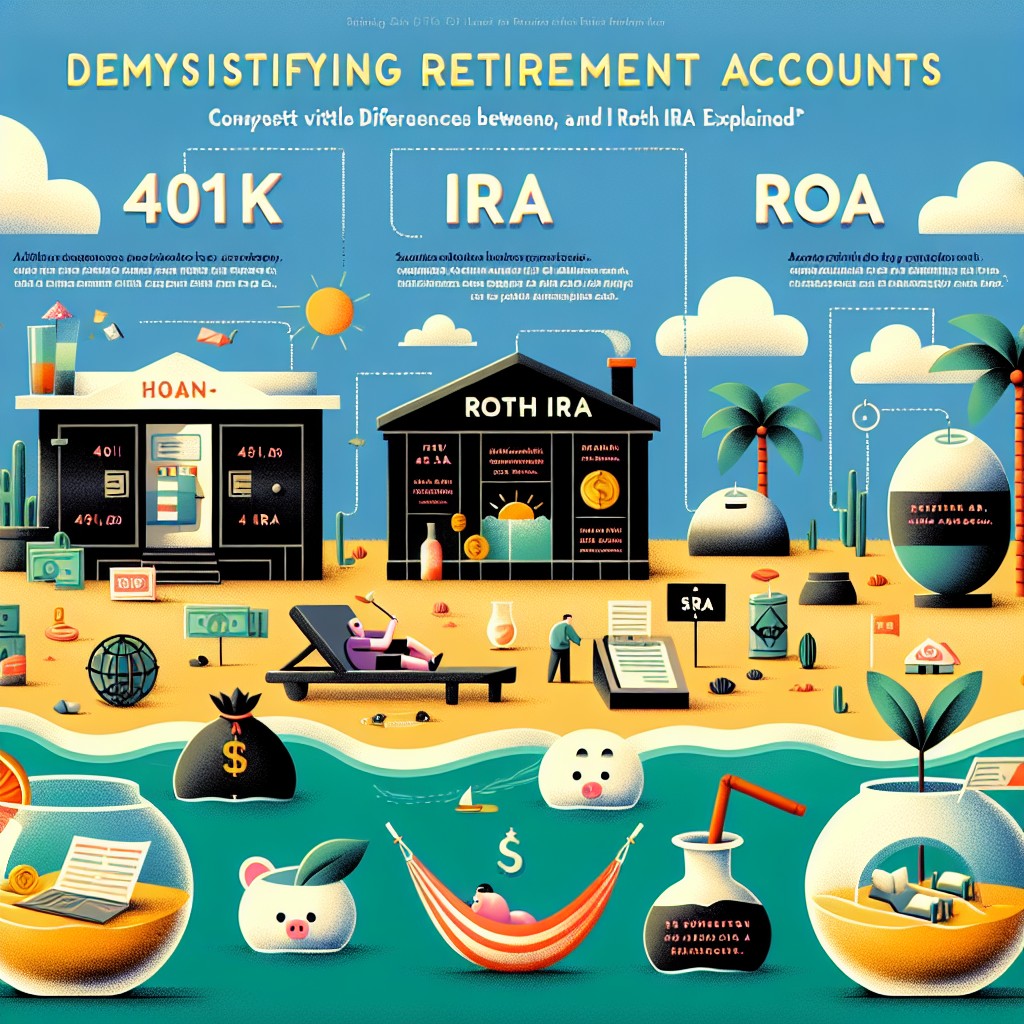Retirement planning is a crucial aspect of financial independence. However, navigating the world of retirement accounts can be overwhelming for many individuals. In this article, we will demystify three popular retirement accounts: 401(k), IRA, and Roth IRA, explaining their features, benefits, and considerations.
1. 401(k) Plan:
A 401(k) is an employer-sponsored retirement plan. It allows employees to contribute a portion of their salary to a retirement account, which is typically invested in a selection of mutual funds or other investment options. Here are some key features of a 401(k) plan:
- Contributions are made pre-tax, reducing taxable income.
- Employers may match a portion of the employee's contributions, providing additional retirement savings.
- Contributions and investment gains grow tax-deferred until withdrawal in retirement.
- Withdrawals before the age of 59 ½ may incur early withdrawal penalties and taxes.
2. Individual Retirement Account (IRA):
An IRA is a retirement account that individuals can open on their own. It offers tax advantages similar to a 401(k) plan but with some differences. Here's what you need to know:
- Contributions to a Traditional IRA may be tax-deductible, reducing taxable income.
- Investment gains grow tax-deferred until withdrawal in retirement.
- Withdrawals before the age of 59 ½ may incur early withdrawal penalties and taxes.
- Roth IRA contributions are made with after-tax dollars, but qualified withdrawals are tax-free.
3. Roth IRA:
A Roth IRA is also an individual retirement account, but it has some unique features compared to a Traditional IRA:
- Contributions are made with after-tax dollars, so they are not tax-deductible.
- Investment gains grow tax-free, and qualified withdrawals are also tax-free.
- Roth IRAs have income limits, meaning not everyone is eligible to contribute.
- There are no required minimum distributions (RMDs) during the account owner's lifetime.
Considerations when choosing a retirement account:
- Employer match: If your employer offers a 401(k) match, it's usually wise to contribute enough to maximize this benefit.
- Tax considerations: Evaluate the tax advantages of each account type based on your current and projected future tax situation.
- Investment options: Consider the available investment options, fees, and flexibility within the retirement account.
- Income limits: Check if you are eligible to contribute to a Roth IRA based on your income.
In conclusion, understanding the differences between 401(k), IRA, and Roth IRA is essential for effective retirement planning. Each account has unique features and benefits, so it's crucial to consider your individual circumstances and goals when choosing the right retirement account for you.

Published on February 4, 2023
Demystifying Retirement Accounts: 401(k), IRA, and Roth IRA Explained
Share This Article
More Articles You Might Like
Discover More Content
Explore our collection of articles across various topics and categories. From cutting-edge technology insights to wellness wisdom, we curate the best stories to expand your horizons.
Article ID: 294